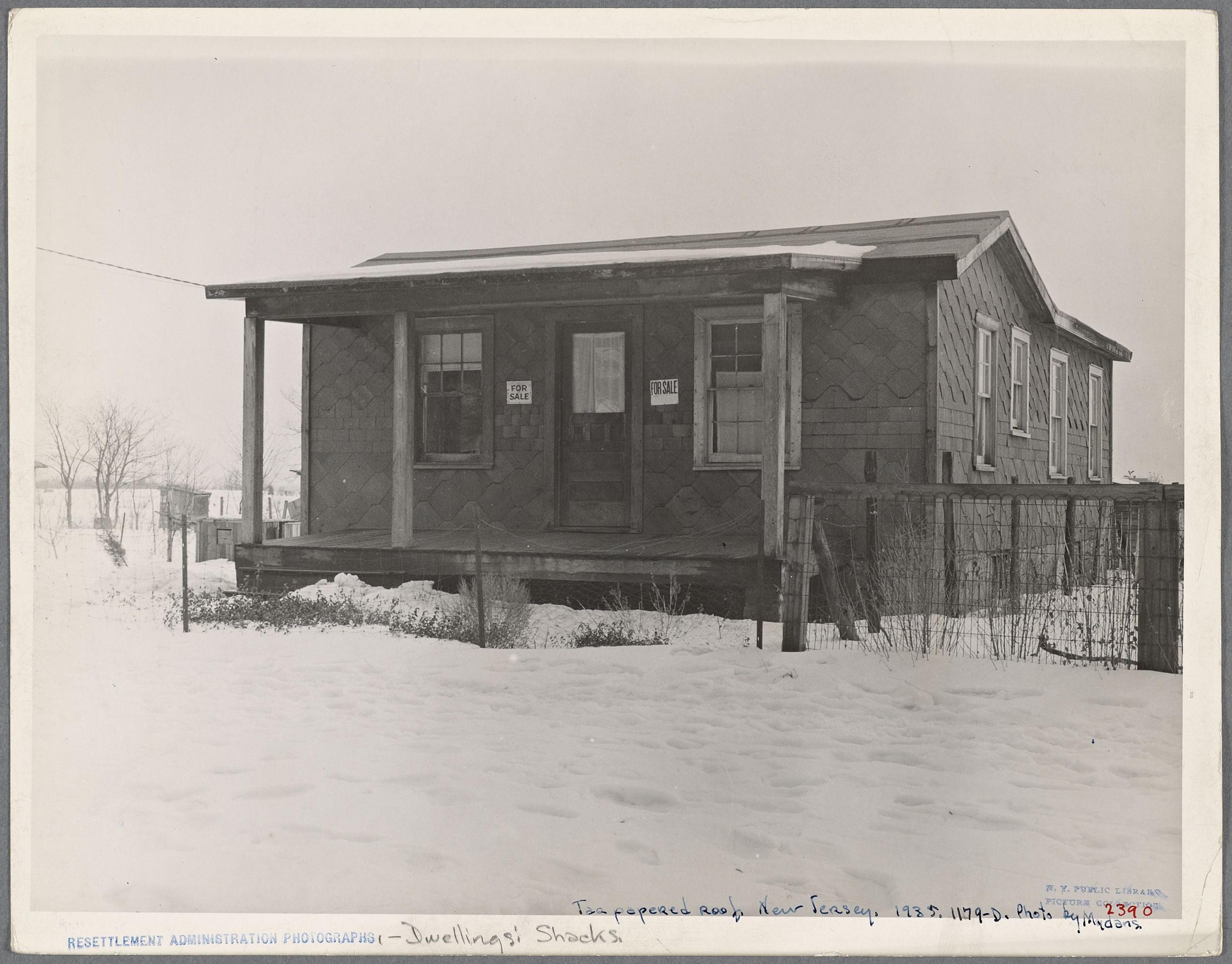Homemading

Carl Mydans:
Tar papered house in New Jersey. (1936)
"Societies go to wither and die where everybody tries to earn a cool million in real estate."
The Villa Vatta Schmaltz was no villa when The Muse and I bought the place nearly a quarter century ago. It then promised to serve as our fixer-upper, our bottomless money pit, our eventual salvation. We paid too much for it, which would not get us into a dilapidated garage in the current market. Like many neighbors, we could not afford our place if we tried to buy it at today's prices. Today's real estate prices have always seemed insane. Yesterday's have always seemed crazy, too, but for the opposite reason.
I bought my first house for $49,950. That's the standard form for a house price. It's never $50K, but $49K and change. The actual cost of any place might ultimately be multiples of the selling price, as it was with that one. Between the 15+% mortgage interest and necessary repairs and upgrades, we paid much more trying to turn that bag of bones into a home than it would ever return to us when sold. After innumerable repairs, scraping every inside wall bare and repainting, hanging wallpaper on precipitous stairs, replacing the roof and considerable exterior siding, not to mention soffits and guttering and exterior painting—and that fence which is still standing— and the landscaping, we sold that home for $39,950 eleven years later.
Homes do not always harbor hearts. Sometimes, they nurture resentments. In today's market, bitterness must be part of people's attachment when they agree to a deal certain to ruin them. A friend just bought a late-sixties suburban one-and-a-half story, maybe eighteen hundred square feet, two full baths, four bedrooms, and an unworkably tiny kitchen for a very cool half million dollars. The place needs at least a couple hundred thousand additional dollars to render it marginally functional. Regardless of how much additional "investment" anyone throws down into its money pit, it will never become anyone's castle. It is what it always was and will never be different.
That's not to say that one day, perhaps in the very near future, some other sucker won't agree to pay seven-hundred and forty-nine thousand, nine-hundred and fifty bucks for the privilege of picking it up. They, too, will find a few glaring shortcomings and set about investing in resolving their disgrace. They, too, will labor under the conviction that they're earning equity, building a future. The neighborhood within which my friend bought is now populated with half-million dollar homes, not one of which The Muse and I could afford or want to. We feel fortunate that we bought a wreck of a place with decent bones and then managed to become lucky enough to hold onto it long enough that it became our home, mainly by accident. We started humbly. What will happen to those who had to show a half million dollars to start playing this game in the unlikely event they even manage to enter the game?
In my parents' time, seventy and more years ago, a postal clerk and his stay-at-home wife could, if frugal, manage to buy the biggest house on the block and, with sacrifice and effort, transform it into their old home place. Their story seems a cruel fantasy in today's market, ancient history. Realtors plead market forces, and I do not know about root causes. I understand that when the ante exceeds one's annual salary and borders on exceeding a decade's honest earnings, young families will not purchase fixer-uppers to transform into their castles. If every home in the neighborhood's worth a cool half million dollars, it ceases to be a neighborhood and instead becomes an investment medium. Goddamn capitalism if this is what this -ism brings. Societies thrive on humble beginnings that promise, fifty years hence, a fenced yard where the grandkids can romp with the neighbor kids. Societies go to wither and die, where everybody tries to earn a cool million in real estate.
©2023 by David A. Schmaltz - all rights reserved


